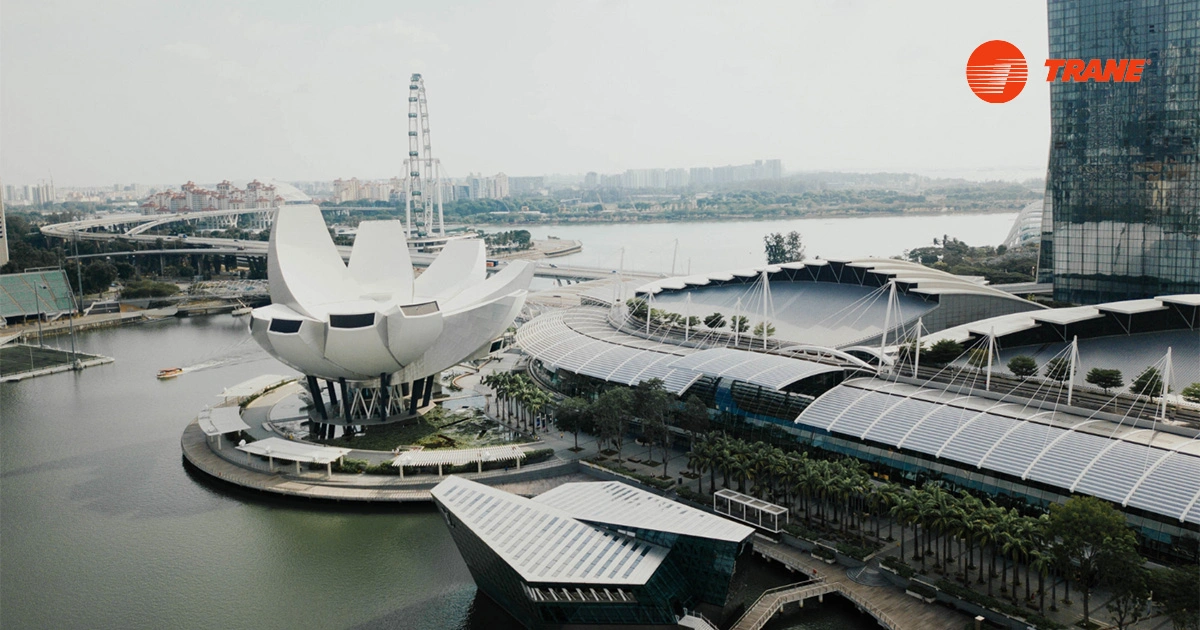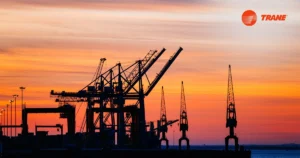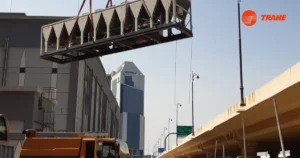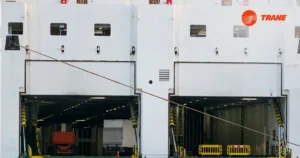As Saudi Arabia accelerates its ambitious Vision 2030, sustainable urban development has become a national priority. Rapidly growing cities like Riyadh, Jeddah, and Neom require advanced infrastructure that not only delivers comfort but also conserves resources. One solution gaining momentum across the Kingdom is the district cooling system, a centralized approach that efficiently distributes chilled water to multiple buildings, reducing energy use while enhancing operational reliability.
Why District Cooling Matters for Saudi Arabia
With temperatures often exceeding 45°C, Saudi Arabia’s cities demand enormous amounts of cooling year-round. Traditional, building-specific systems consume excessive energy and often operate inefficiently under continuous load. District-level solutions address this challenge by consolidating production, optimizing equipment, and leveraging economies of scale. For municipalities and developers, this approach represents a sustainable path toward supporting population growth while reducing environmental impact.
Energy Efficiency and Environmental Benefits
Energy consumption for cooling accounts for a significant portion of Saudi Arabia’s electricity demand. District networks lower consumption by deploying high-efficiency chillers, smart controls, and centralized monitoring. This not only reduces costs but also cuts greenhouse gas emissions. As the Kingdom embraces global sustainability standards, such innovations align perfectly with its goals for reduced carbon intensity and smarter urban planning.
Applications in Mega Projects
Saudi Arabia’s landmark projects are increasingly turning to district cooling. Developments like NEOM, The Red Sea Project, and Qiddiya are designed around modern infrastructure that integrates environmental responsibility into every phase. District systems allow developers to maintain indoor comfort across thousands of residences, offices, and hotels without compromising on sustainability. By integrating advanced systems at scale, these projects are setting new global benchmarks for smart urban design.
Supporting Businesses and Communities
District networks are not just about large developments; they also benefit hospitals, universities, and business districts. Centralized cooling ensures stable indoor climates that improve occupant comfort, enhance productivity, and reduce maintenance burdens. For Saudi businesses, reliable climate control translates directly into competitive advantage, safeguarding both operational efficiency and customer satisfaction.
Integration of Advanced Technologies
Modern networks leverage digital technologies, including real-time monitoring, automated controls, and predictive analytics. These capabilities allow operators to identify inefficiencies, forecast demand, and prevent equipment failures before they occur. By combining innovation with scale, district systems provide unmatched reliability while maintaining cost control.
Role of Air Cooled Solutions
While water-cooled plants dominate large networks, air cooled chiller technology also plays an important role in Saudi Arabia. These systems are particularly useful in locations with limited water resources or where flexibility is essential. Their adaptability allows integration into mixed-use developments, complementing larger plants to deliver reliable service across varied conditions. The combination of district solutions and air-cooled technologies ensures that Saudi Arabia’s cooling infrastructure remains both versatile and resilient.
Case Examples in Saudi Arabia
- Healthcare: Medical cities deploy district networks to guarantee stable indoor climates for patients and staff.
- Education: Universities rely on centralized solutions to provide consistent learning environments across expansive campuses.
- Commercial Complexes: Shopping malls and office towers integrate into networks that lower energy costs and deliver long-term savings.
These examples show how district solutions are creating value across multiple sectors, reinforcing their role as a cornerstone of sustainable development.
Why Trane Saudi Arabia Is the Trusted Partner
Trane combines global leadership in cooling innovation with deep local expertise. Its district cooling solutions include not only advanced equipment but also design consultation, installation, and lifecycle support. With a focus on reliability, energy efficiency, and compliance with Saudi regulations, Trane delivers systems that meet the demands of modern developments while aligning with sustainability goals.
Closing Thought
As Saudi Arabia reimagines its cities for the future, district-level solutions will define the next era of sustainable infrastructure. By working with Trane Saudi Arabia, developers, businesses, and communities can secure advanced systems tailored to local needs. With proven expertise and reliable support, Trane ensures that every project benefits from world-class technology and dependable air cooled chiller integration.




